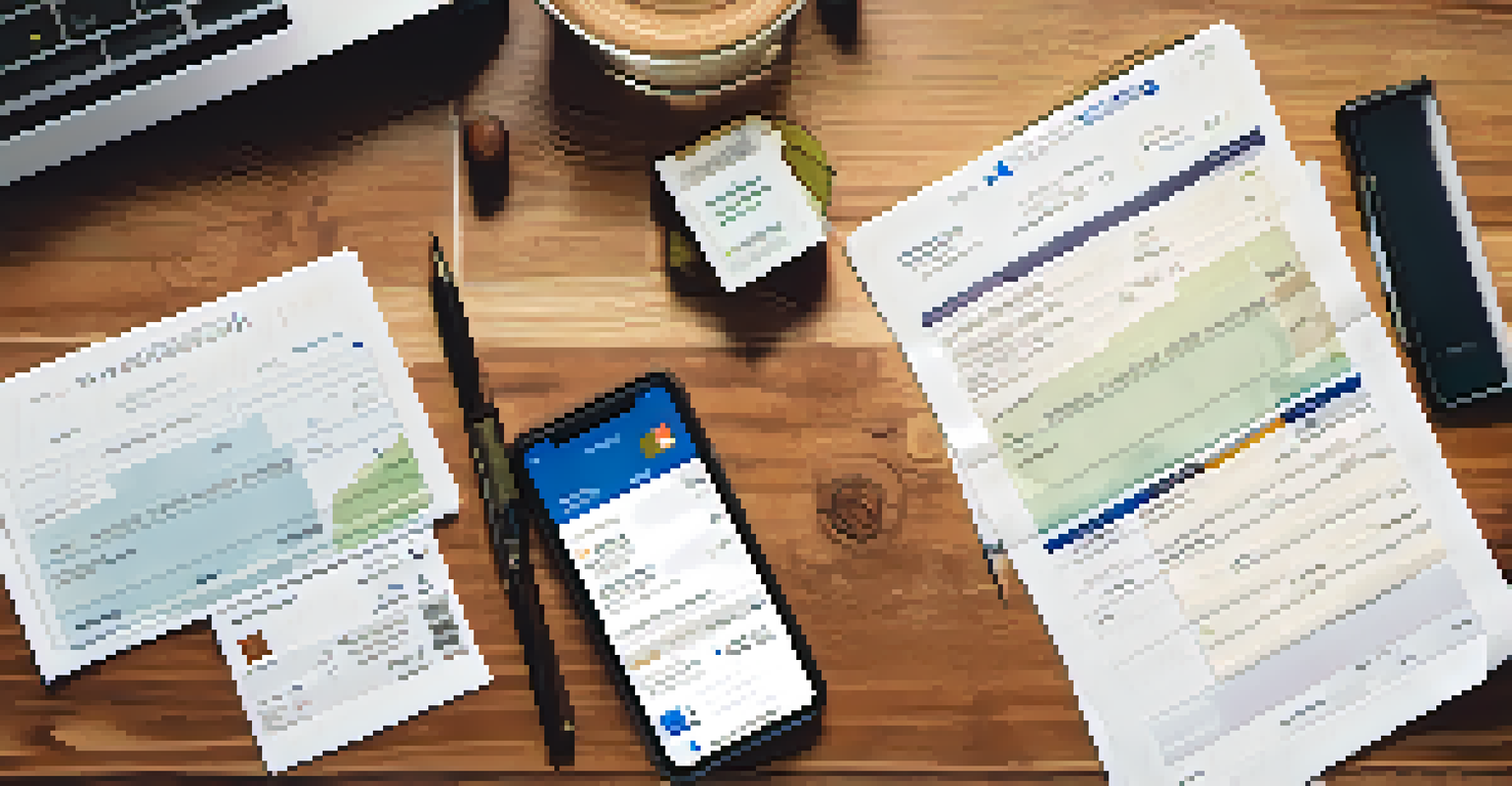Travel and Transportation Deductions: Claiming Your Expenses

Understanding Travel and Transportation Deductions
Travel and transportation deductions can significantly lower your tax bill if you know how to claim them right. These deductions are typically available for business-related travel, such as visiting clients or attending conferences. It's important to understand the difference between personal and business travel to accurately categorize your expenses.
The only thing certain about taxes is that they are a part of life. The better you understand them, the more you can save.
When you travel for business, many of your associated costs, like airfare, hotel stays, and meals, can be deducted. However, personal trips mixed with business activities require careful documentation. Keeping a detailed log of your travel can help you distinguish between deductible and non-deductible expenses.
In essence, travel deductions allow you to recover some of your expenses incurred while conducting business. This not only eases the financial burden but also incentivizes business growth by encouraging professionals to pursue valuable opportunities.
Types of Deductions You Can Claim
There are several types of travel and transportation expenses you can claim, including transportation costs, lodging, and meal expenses. For instance, if you drive to a business meeting, you can deduct either the standard mileage rate or actual expenses like gas and maintenance. The choice depends on which method gives you a larger deduction.

Additionally, overnight travel expenses can be deducted, which includes hotel costs and meals. Remember, meals are typically only 50% deductible, so it's wise to keep detailed receipts. This way, you'll have all the documentation you need when tax season rolls around.
Understand Travel Deductions
Travel deductions can significantly reduce your tax bill by allowing you to claim business-related expenses like airfare, lodging, and meals.
Another significant category includes the costs of travel-related activities, such as conferences or seminars. Investing in your professional development not only enhances your skills but also offers potential tax benefits, making it a win-win situation.
Documenting Your Travel Expenses
Proper documentation is crucial when it comes to claiming travel deductions. The IRS requires you to keep records that prove the purpose of your trip, the expenses incurred, and how they relate to your business. This can include receipts, itineraries, and even notes from meetings.
Documentation is the key to success in business, and that includes keeping meticulous records of your expenses.
Using a dedicated travel expense tracker or app can simplify this process. These tools allow you to capture receipts and categorize expenses on the go, making it easier to compile everything at tax time. Plus, it reduces the risk of losing important documents.
Remember, the goal is to create a clear trail of evidence that supports your claims. Not only does this prepare you for tax season, but it also protects you in case of an audit, ensuring that you can substantiate your deductions.
Common Mistakes to Avoid When Claiming Deductions
One common mistake is failing to separate personal and business travel expenses. If you mix personal and business activities during a trip, it’s essential to only claim the expenses directly related to the business portion. This means keeping accurate records for each segment of your trip.
Another error is not maintaining sufficient documentation. Without proper receipts, you may find that the IRS disallows your deductions. Always keep a backup of your records, whether digital or physical, to ensure you have what you need when filing your taxes.
Keep Accurate Documentation
Maintaining detailed records of your travel expenses is crucial to substantiate your claims and avoid issues with the IRS.
Lastly, be cautious about claiming extravagant expenses. The IRS looks for reasonable and necessary expenses related to business activities. If your expenses seem excessive, it may raise red flags, potentially leading to an audit.
How to Calculate Mileage Deductions
Calculating mileage deductions can be straightforward if you follow the IRS guidelines. The IRS provides a standard mileage rate that you can use to determine your deduction based on the miles driven for business purposes. This rate changes annually, so it’s important to stay updated.
To calculate your deduction, simply multiply your business miles by the current standard mileage rate. For instance, if you drove 100 miles for business at a rate of 56 cents per mile, your deduction would be $56. This method is often simpler and less time-consuming than tracking actual vehicle expenses.
If you choose to deduct actual expenses instead of using the standard rate, you'll need to keep track of all your vehicle-related costs, including gas, repairs, and insurance. Whichever method you choose, accurate records are key to maximizing your deductions.
Claiming Deductions for International Travel
International travel can be a bit trickier when it comes to deductions, but it’s still possible to claim expenses. If your trip includes both business and personal activities, you'll need to allocate expenses accordingly. This means documenting which days were spent on business versus personal activities.
Airfare can typically be fully deducted if the primary purpose of the trip is business. However, if the trip is primarily for personal reasons, only the expenses related to business activities are deductible. Keep in mind that the IRS has specific rules regarding the allocation of expenses, so it's crucial to do your homework.
Consult a Tax Professional
Engaging a tax professional can help you navigate complex deduction rules and maximize your savings while ensuring compliance with tax laws.
Additionally, expenses such as lodging and meals can also be claimed for business days. Just like with domestic travel, maintaining thorough records is essential for international trips to ensure compliance and maximize your deductions.
The Importance of Consulting a Tax Professional
Navigating the world of travel and transportation deductions can be complex, and that's where a tax professional comes in. They can provide personalized guidance tailored to your specific situation, helping you identify all possible deductions. This can ultimately save you both time and money in the long run.
Tax professionals stay updated on the latest tax laws and regulations, ensuring you remain compliant with IRS requirements. They can also help you avoid common pitfalls that could lead to audits or penalties, giving you peace of mind during tax season.

Investing in a tax professional might seem like an added expense, but it often pays off by maximizing your deductions and minimizing your tax liability. So don’t hesitate to reach out for expert advice to make the most of your travel and transportation deductions.